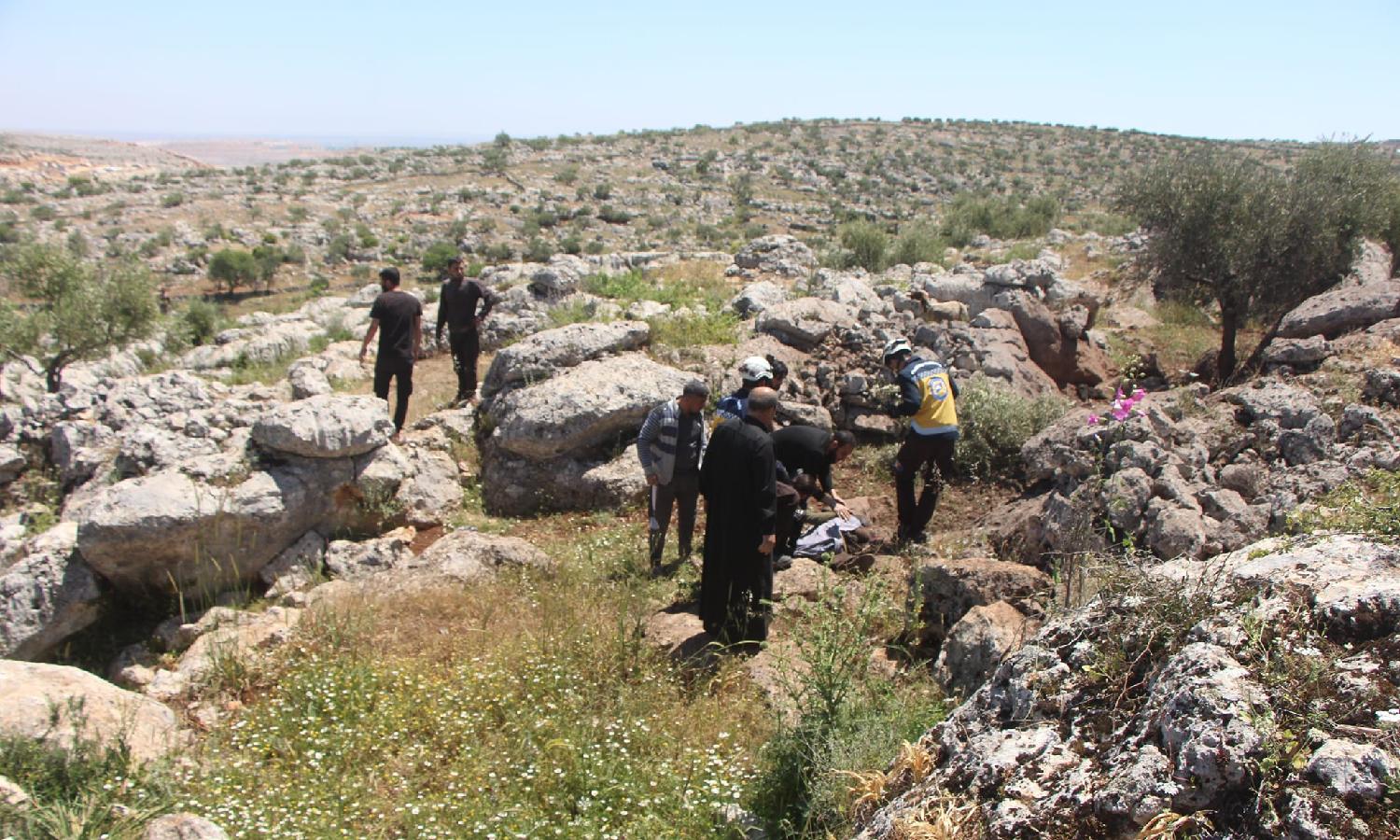



The US forces admitted that they killed a civilian instead of an al-Qaeda leader, a year after targeting him in the town of Qurqania in northern Idlib, considering what happened to be a mistake.
The US Central Command (CENTCOM) stated on Thursday, May 2, that the American forces misidentified the intended target, and as a result, the civilian Lufti Hasan Masto was injured and killed instead.
It was noted that the investigation opened following the incident contains classified information that cannot be publicly shared, but the investigation concluded that the strike was conducted in accordance with the law of armed conflict, in addition to the policies of the Department of Defense and the US Central Command.
The investigation revealed several issues that could be improved, and Washington is committed to learning from this incident and enhancing its targeting operations to minimize potential harm to civilians.
On May 3, 2023, a US drone strike in the town of Qurqania, northern Idlib, targeted Lufti Hasan Masto, who was killed hours after the strike. The US Central Command initially announced that they had targeted a “senior al-Qaeda leader” in northwest Syria, without precisely pinpointing the location, and promised to provide more details later.
The Syria Civil Defence responded to the incident within minutes, and about an hour later, they reported on Facebook that the man had been killed by a missile strike from an unidentified drone while he was herding sheep.
Local testimonies obtained by Enab Baladi at the time indicated that the target was a civilian who was not affiliated with any faction and had not engaged in military activities in Syria. He was 56 years old, married, with 11 children, and known in his hometown of Qurqania.
Masto owned a brick-pressing business before he took up poultry farming and sheep herding, and he was not known to have any prior problems or to have carried any weapons, according to statements from his relatives and local villagers to Enab Baladi.
Enab Baladi contacted the US Central Command on May 4, 2023, for comments on information suggesting that the man was a civilian and was not affiliated with any faction, seeking clarification of his alleged connection to the terrorist organization, but received no response up to the time of publishing this news.
In a previous report by Enab Baladi on the incident, Mohammad al-Abdallah, the director of the Syrian Justice and Accountability Center (SJAC), noted that the family’s presence in the north does not prevent pursuing legal action. A lawyer based in the US could technically be hired remotely to file a lawsuit against the US Department of Defense.
Al-Abdallah explained that handling such cases tends to be more administrative rather than judicial, with an investigation being opened into the incident and decisions made based on the findings. The complaint in this case would be civil, not criminal, hence the most achievable outcome might involve compensation and the issuance of apology letters, once the case is adjudicated and the information about the strike and intelligence is reviewed.
Al-Abdallah highlighted that if the US forces targeted the civilian based on a suspicion (e.g., the leader fleeing and the civilian remaining) or faulty intelligence, the case would be built around the intent to pursue a legitimate target, which makes it a civil rather than a criminal issue.
The director of the human rights center mentioned that the issue lies in the fact that the US Department of Defense has not established a compensation and apology program in Syria. This has led to ongoing demands for compensation for the victims of strikes, especially in northeastern Syria, during the fight against the Islamic State organization.
Al-Abdallah indicated that it was unclear whether the US Department of Defense was following the policy it had previously published regarding civilian casualties in conflicts. When the US military is involved, the Department of Defense is supposedly required to resolve these cases within 90 days of their occurrence, thereby necessitating an investigation to determine whether there was a violation, and if so, to issue an apology and compensation.
if you think the article contain wrong information or you have additional details Send Correction